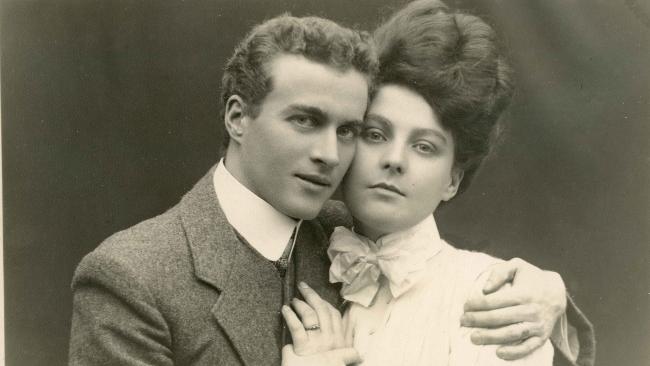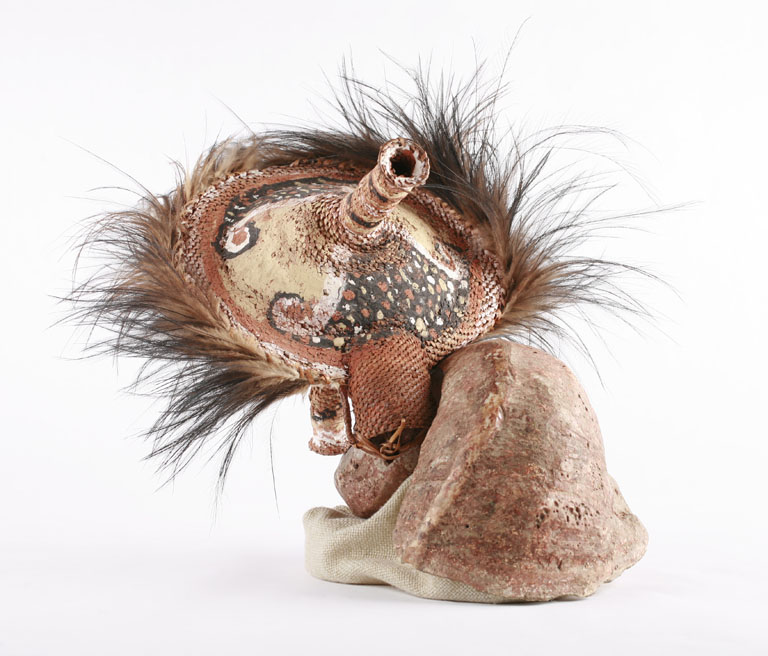|
Fiancé
An engagement or betrothal is the period of time between the declaration of acceptance of a marriage proposal and the marriage itself (which is typically but not always commenced with a wedding). During this period, a couple is said to be ''fiancés'' (from the French), "betrothed", "intended", "affianced", "engaged to be married", or simply "engaged". Future brides and grooms may be called ''fiancée'' (feminine) or ''fiancé'' (masculine), "the betrothed", "wife-to-be" or "husband-to-be", respectively. The duration of the courtship varies vastly, and is largely dependent on cultural norms or upon the agreement of the parties involved. Long engagements were once common in formal arranged marriages, and it was not uncommon for parents betrothing children to arrange marriages many years before the engaged couple were old enough. This is still done in some countries. Many traditional Christian denominations have optional rites for Christian betrothal (also known as "blessing a ... [...More Info...] [...Related Items...] OR: [Wikipedia] [Google] [Baidu] |
Betrothal
An engagement or betrothal is the period of time between the declaration of acceptance of a marriage proposal and the marriage itself (which is typically but not always commenced with a wedding). During this period, a couple is said to be ''fiancés'' (from wikt:fiancé#French, the French), "betrothed", "intended", "affianced", "engaged to be married", or simply "engaged". Future brides and grooms may be called ''fiancée'' (feminine) or ''fiancé'' (masculine), "the betrothed", "wife-to-be" or "husband-to-be", respectively. The duration of the courtship varies vastly, and is largely dependent on cultural norms or upon the agreement of the parties involved. Long engagements were once common in formal arranged marriages, and it was not uncommon for parents betrothing children to arrange marriages many years before the engaged couple were old enough. This is still done in some countries. Many traditional Christian denominations have optional rites for Christian betrothal (also k ... [...More Info...] [...Related Items...] OR: [Wikipedia] [Google] [Baidu] |
William-Adolphe Bouguereau (1825-1905) - The Proposal (1872)
William-Adolphe Bouguereau (; 30 November 1825 – 19 August 1905) was a French academic painter. In his realistic genre paintings, he used mythological themes, making modern interpretations of classical subjects, with an emphasis on the female human body. During his life, he enjoyed significant popularity in France and the United States, was given numerous official honors, and received top prices for his work. As the quintessential salon painter of his generation, he was reviled by the Impressionist avant-garde. By the early twentieth century, Bouguereau and his art fell out of favor with the public, due in part to changing tastes. In the 1980s, a revival of interest in figure painting led to a rediscovery of Bouguereau and his work. He finished 822 known paintings, but the whereabouts of many are still unknown. Life and career Formative years William-Adolphe Bouguereau was born in La Rochelle, France, on 30 November 1825, into a family of wine and olive oil merchants.Wis ... [...More Info...] [...Related Items...] OR: [Wikipedia] [Google] [Baidu] |
Erusin (Jewish Betrothal)
''Erusin'' (, also Talmudic academies in Babylonia, Babylonian ''ʾirrusin'') is the Hebrew language, Hebrew term for betrothal. In Modern Hebrew, ''erusin'' means engagement, but this is not the historical meaning of the term, which is the first part of marriage, the second part being the ''nissuin'' "nuptials". Since the Middle Ages it is customary for the marriage to occur immediately after the betrothal, and to perform the betrothal during the marriage ceremony itself. Previously, this was not the case, and there were often several months between the two events, according to Ketubot (Talmud), Ketubot 57b: "a virgin is given twelve months to prepare for her wedding? ... a widow given her thirty days". In Hebrew and rabbinic literature, betrothal is frequently referred to as "sanctification" (), on account of the bride becoming "sanctified" (dedicated) to the groom. In the Hebrew Bible The Book of Deuteronomy introduces the concept of erusin. This holds the couple accountab ... [...More Info...] [...Related Items...] OR: [Wikipedia] [Google] [Baidu] |
Child Marriage
Child marriage is a practice involving a marriage or domestic partnership, formal or informal, that includes an individual under 18 and an adult or other child.* * * * Research has found that child marriages have many long-term negative consequences for child brides and grooms. Girls who marry as children often lack access to education and future career opportunities. It is also common for them to have adverse health effects resulting from early pregnancy and childbirth. Effects on child grooms may include the economic pressure of providing for a household and various constraints in educational and career opportunities. Child marriage is part of the practice of child betrothal, often including civil cohabitation and a court approval of the engagement. Some factors that encourage child marriages include poverty, bride price, dowries, cultural traditions, religious and social pressure, regional customs, fear of the child remaining unmarried into adulthood, illiteracy, and ... [...More Info...] [...Related Items...] OR: [Wikipedia] [Google] [Baidu] |
Neo-pagan
Modern paganism, also known as contemporary paganism and neopaganism, spans a range of new religious movements variously influenced by the beliefs of pre-modern peoples across Europe, North Africa, and the Near East. Despite some common similarities, contemporary pagan movements are diverse, sharing no single set of beliefs, practices, or religious texts. Scholars of religion may study the phenomenon as a movement divided into different religions, while others study neopaganism as a decentralized religion with an array of denominations. Adherents rely on pre-Christian, folkloric, and ethnographic sources to a variety of degrees; many of them follow a spirituality that they accept as entirely modern, while others claim to adhere to prehistoric beliefs, or else, they attempt to revive indigenous religions as accurately as possible. Modern pagan movements are frequently described on a spectrum ranging from reconstructive, which seeks to revive historical pagan religions; to ... [...More Info...] [...Related Items...] OR: [Wikipedia] [Google] [Baidu] |
Lionel Logue 1906
Lionel may refer to: Name *Lionel (given name) Places *Lionel, Lewis, a village in the Outer Hebrides of Scotland *Lionel Town, Jamaica, a settlement Brands and enterprises *Lionel, LLC, an American designer and importer of toy trains and model railroads, which owns the trademarks and most of the product rights associated with Lionel Corp., but is not directly related *Lionel Corporation Lionel Corporation was an American toy manufacturer and holding company of retailers that was founded in 1900 and operated for more than 120 years. It started as an electrical novelties company. Lionel specialized in various products throughout ..., an American manufacturer and retailer of model trains and model railroads, both scale and semiscale Other uses * Lionel (bridge), a defense in the game of bridge {{disambiguation ... [...More Info...] [...Related Items...] OR: [Wikipedia] [Google] [Baidu] |
Clergy
Clergy are formal leaders within established religions. Their roles and functions vary in different religious traditions, but usually involve presiding over specific rituals and teaching their religion's doctrines and practices. Some of the terms used for individual clergy are clergyman, clergywoman, clergyperson, churchman, cleric, ecclesiastic, and vicegerent while clerk in holy orders has a long history but is rarely used. In Christianity, the specific names and roles of the clergy vary by denomination and there is a wide range of formal and informal clergy positions, including deacons, elders, priests, bishops, cardinals, preachers, pastors, presbyters, ministers, and the pope. In Islam, a religious leader is often known formally or informally as an imam, caliph, qadi, mufti, sheikh, mullah, muezzin, and ulema. In the Jewish tradition, a religious leader is often a rabbi (teacher) or hazzan (cantor). Etymology The word ''cleric'' comes from the ecclesia ... [...More Info...] [...Related Items...] OR: [Wikipedia] [Google] [Baidu] |
Engagement Ring
An engagement ring, also known as a betrothal ring, is a ring indicating that the person wearing it is engaged to be married, especially in Western cultures. A ring is presented as an engagement gift by a partner to their prospective spouse when they propose marriage to represent a formal agreement to future marriage. In most Western countries, engagement rings are usually worn only by women, and they are typically adorned with diamonds. In some countries, partners wear matching rings, and engagement rings may also be used as wedding rings. In the Anglosphere, the ring is customarily worn on the left hand ring finger, but customs vary across the world. Engagement rings have been common in Western countries since at least the time of the Roman Empire. They began to feature diamonds during the Renaissance, although most commoners could not afford diamond rings prior to the discovery of the South African diamond mines in the 19th century. In some Christian traditions, engag ... [...More Info...] [...Related Items...] OR: [Wikipedia] [Google] [Baidu] |
Dowry
A dowry is a payment such as land, property, money, livestock, or a commercial asset that is paid by the bride's (woman's) family to the groom (man) or his family at the time of marriage. Dowry contrasts with the related concepts of bride price and dower. While bride price or bride service is a payment by the Bridegroom, groom, or his family, to the bride, or her family, dowry is the wealth transferred from the bride, or her family, to the groom, or his family. Similarly, dower is the property settled on the bride herself, by the groom at the time of marriage, and which remains under her ownership and control. Traditionalist dowry is an ancient custom that is mentioned in some of the earliest writings, and its existence may well predate records of it. Dowries continue to be expected and demanded as a condition to accept a marriage proposal in some parts of the world, mainly in parts of Asia. The custom of dowry is most common in strongly patrilineal cultures that expect women t ... [...More Info...] [...Related Items...] OR: [Wikipedia] [Google] [Baidu] |
Bride Price
Bride price, bride-dowry, bride-wealth, bride service or bride token, is money, property, or other form of wealth paid by a groom or his family to the woman or the family of the woman he will be married to or is just about to marry. Bride dowry is equivalent to dowry paid to the groom in some cultures, or used by the bride to help establish the new household, and dower, which is property settled on the bride herself by the groom at the time of marriage. Some cultures may practice both simultaneously. Many cultures practiced bride dowry prior to existing records. The tradition of giving bride dowry is practiced in many East Asian countries, Eastern Europe, the Middle East, parts of Africa and in some Pacific Island societies, notably those in Melanesia. The amount changing hands may range from a token to continue the traditional ritual, to many thousands of US dollars in some marriages in Thailand, and as much as $100,000 in exceptionally large bride dowry in parts of Papua New G ... [...More Info...] [...Related Items...] OR: [Wikipedia] [Google] [Baidu] |









